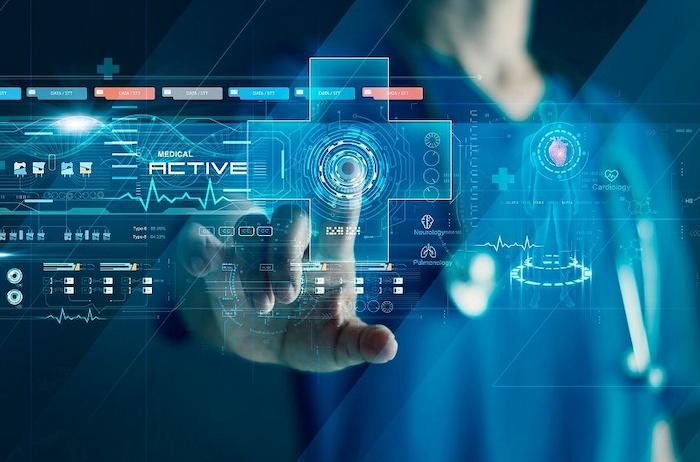Innovative Medical Technologies: How AI, Telemedicine, and Robotics Are Revolutionizing Healthcare
Medicine is constantly evolving and, with that, new innovative medical technologies have emerged to assist in the diagnosis and treatment of various diseases. These technologies are revolutionizing the way medicine is practiced, bringing significant advances to the health and well-being of patients.
From developing wearable devices to monitor health to using artificial intelligence to help diagnose disease, innovative medical technologies are transforming the way doctors work and the way patients are treated. Additionally, these technologies are making treatments more efficient and personalized, leading to better patient outcomes.
In this post, we’ll explore some of the innovative medical technologies that are changing medicine. Let’s look at how they work, their benefits and how they are being used in different areas of medicine. Through this review, we hope to demonstrate how these technologies are improving the health and well-being of patients and the positive impact they are having on medicine as a whole.
How is artificial intelligence being used in medicine?
Artificial intelligence (AI) is transforming medicine and revolutionizing the way diseases are diagnosed and treated. AI technology can process huge amounts of data in a short period of time and thus assist doctors in making decisions.
One of the main areas of application of AI in medicine is radiology, where machine learning algorithms help identify anomalies in medical images, such as CT scans and MRIs. AI is also used for genetic analysis and in remote diagnostic systems for monitoring the health of patients in real time.
Furthermore, AI can be used to create predictive models that help predict the risk of certain diseases and medical conditions. This can help clinicians identify patients who need additional care, allowing them to focus on prevention and early diagnosis.
However, despite the benefits, AI still faces challenges and concerns in medicine, such as privacy and data security issues, as well as the need to ensure that the technology does not replace the doctor-patient relationship and clinical judgment. However, with the continued advancement of technology, AI has the potential to significantly improve the quality of healthcare and save lives.
What are the latest innovative medical technologies
Medicine is constantly evolving, and new innovative medical technologies are emerging all the time to improve the quality of healthcare. Some of the latest technologies include:
- Gene therapy – This technique uses genes to treat or prevent disease. Scientists can insert healthy genes into cells with defective genes, helping the body produce missing healthy proteins.
- Nanotechnology – Nanotechnology uses microscopic particles to deliver drugs directly to affected cells or tissues. This allows medications to be administered more accurately and effectively.
- 3D Printing – 3D printing is being used to create custom prosthetics, medical devices, and even human organs. This can help reduce waiting times for organ transplants and improve treatment accuracy.
- Virtual Reality – Virtual reality is being used to help treat anxiety disorders, phobias and chronic pain. Patients can be exposed to situations that help them overcome their fears and anxieties.
- Surgical robotics – Surgical robotics allow surgeons to perform procedures with more precision and less invasiveness. This can lead to shorter recovery times and fewer post-operative complications.
These are just some of the latest innovative medical technologies that are changing the way medicine is practiced. As technology continues to advance, we can look forward to more exciting advances in medicine and general health.
Telemedicine: how does it work and what are its benefits?
Telemedicine is a healthcare model that uses communication and information technologies to provide medical services to patients in remote locations or in areas with limited resources. This practice has been gaining prominence, especially during the pandemic, for allowing patients to receive care without leaving home.

The benefits of telemedicine are numerous. It offers a more accessible and convenient way to receive medical care, especially for those who live in remote areas or have difficulty commuting to appointments. It can also help improve the quality of care by allowing doctors to monitor patients closely and respond quickly to changes in their condition.
Telemedicine can be used in several areas of medicine, from basic medical consultation to telesurgery. Some examples of telemedicine services include virtual consultations with doctors, remote monitoring of patient health and transmission of medical data such as test results and medical images.
How is technology improving the accuracy and effectiveness of surgical procedures?
Technology has been a great ally in improving the precision and effectiveness of surgical procedures. Several technological innovations are available to help surgeons perform operations more accurately and safely, reducing the risk of complications and improving patient recovery.
One of the most widely used technologies is robotic surgery, which allows surgeons to perform procedures with more precision and less invasiveness. Surgical robots have articulated arms with surgical instruments that can be remotely controlled by the surgeon, allowing precise and minimally invasive movements. This can lead to shorter recovery times and fewer post-operative complications.
Additionally, augmented reality and virtual reality are being used to simulate surgical procedures, allowing surgeons to practice before performing the actual surgery. This helps reduce procedure time and improves accuracy during surgery.
How is nanotechnology being used in medicine?
Nanotechnology is a technology that manipulates materials on an extremely small scale, on the nanometer scale. In medicine, nanotechnology has been widely used to improve the effectiveness of treatments, reduce side effects and enable new types of therapies.
One of the most promising applications of nanotechnology in medicine is the use of nanoparticles to deliver drugs directly to affected cells or tissues. This allows medications to be administered more accurately and effectively, reducing toxicity and side effects to other parts of the body.
Deixe um comentário